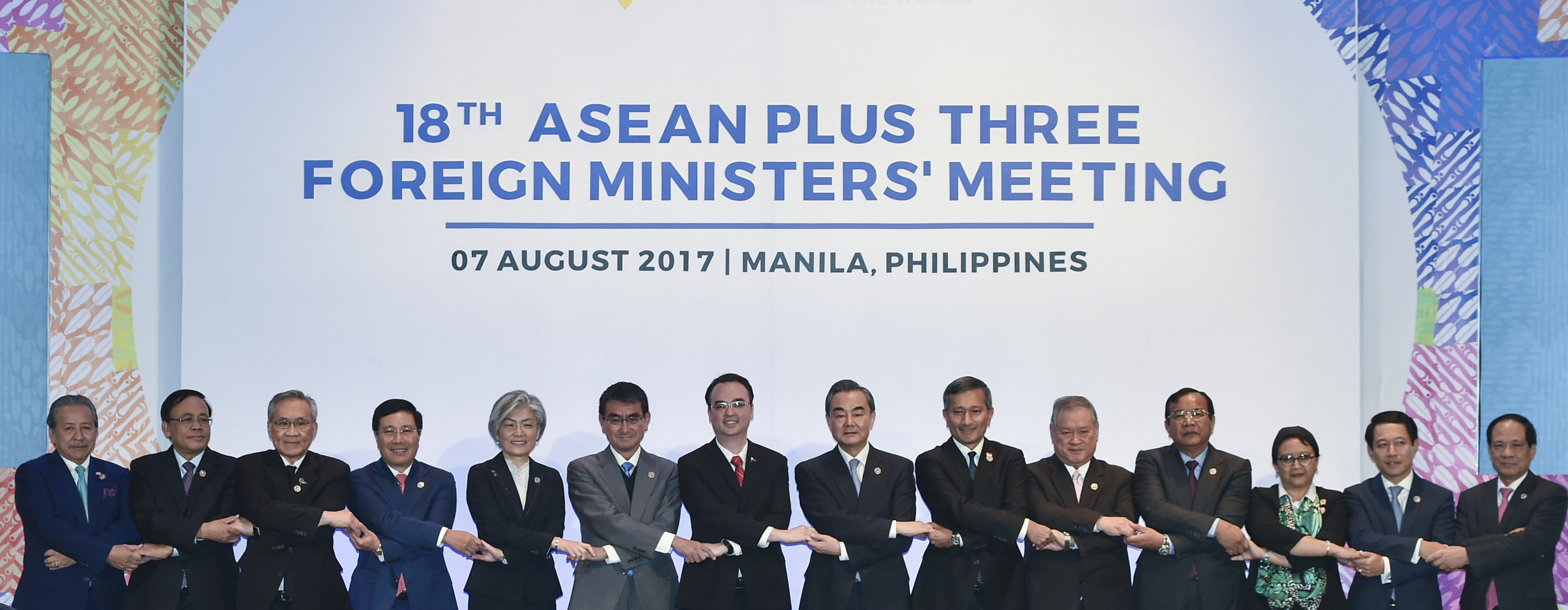ASEAN Plus Three (APT) vowed to strengthen their cooperation against the backdrop of increasing protectionism, during the recent 50th ASEAN Foreign Ministers' Meeting in Manila, the Philippines. This will help promote economic stability in the region.
The foreign affairs ministers from ASEAN and their East Asian counterparts – China, South Korea and Japan – recognised the importance of ASEAN Centrality as the driving force for the continuity of regional architecture – during the dialogue held among the nations.
The APT Cooperation Work Plan 2018-2022 will serve as a “principal guide to enhance APT cooperation over the next five years towards achieving the long-term goal of establishing an East Asia community”, as explained by the statement released by APT.
This Work Plan will “help fulfill the East Asia Economic Community vision by 2020, assist ASEAN in realising its Community Vision 2025 goals and further strengthen the APT partnership”.
During the dialogue, Chinese Foreign Minister Wang Yi reassured that China would actively participate and promote cooperation among the 13 nations under the APT community.
In act of consent, Japan Foreign Minister Taro Kono, said “Japan will cooperate with ASEAN, China and South Korea to increase the predictability of a regional or world economic crisis”.
He further explained that “Japan will battle growing protectionism by taking a clear stand against trade-restraining moves”.
When speaking on the North Korea threats, Kono flagged that the APT community “must increase pressure to South Korea to curb its nuclear and missile ambitions”.
The participating foreign affairs ministers were happy to note how far the APT community has come, in conjunction with its 20th anniversary. APT has been functional in ASEAN’s development and prosperity through the regional cooperation of the 10+3 mechanism.
The East Asian community counterparts expressed hope that Regional Comprehensive Economic Partnership (RCEP) will materialise earlier to better protect global free trade.
